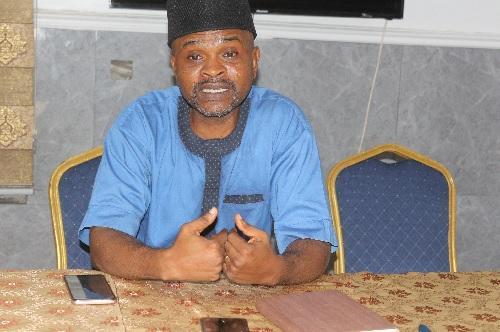
The recent decision by President Muhammadu Buhari to sign into law the National Health Insurance Authority Bill 2022, which repeals the National Health Insurance Scheme Act 2004, has continued to generate positive reactions from pharmacists, especially those in community practice. In this exclusive interview, Pharm. Lawrence Ekhator, chairman of the Association of Community Pharmacists of Nigeria (ACPN) in Lagos State, explains the implications of the move, while also dissecting some other issues surrounding community pharmacy practice in the state. He also outlines his achievements and challenges since assuming office over a year ago. Excerpts:
How has it been as the chairman of ACPN, Lagos State? What would you describe as your greatest challenges and success so far?
The office of the chairman of ACPN, especially in a state like Lagos, is, to say the least, very tasking. You’re virtually on your toes, on your feet for every hour of the day. Even when you are moving, your phone never stops ringing because there are lots of issues. And when you know you have to tackle issues from over 2000 community pharmacists, then you know that you cannot afford to rest on your oars, waiting for the problems to solve themselves. Besides, that is the reason why we were elected to office, then we cannot afford to rest until such problems are solved.
So, the past one year has been for finding solutions to one problem or another, but we thank God that it has been a worthy challenge. There’s also the fact that the office is not a place that I entered by chance; there was a level of training and preparation for it. I am glad that I am able to meet those challenges as they come and the majority of the challenges have been solved.
Talking about our successes, I’m glad to say one on top of those successes is the fact that community pharmacies are now being recognized as primary healthcare providers with the beginning of vaccination services in community pharmacies in Lagos State and, by extension, the country. That is an achievement. It’s something that I don’t claim an exclusive right to, but in collaboration with our national body. Being a group work, it’s something that I believe that we were able to achieve.
Outside of that, we were also able to mend relationships that seemed to have broken down in the past. One of such was with the Nigerian Police and the National Drug Law Enforcement Agency, NDLEA. We’ve been able to mend fences. We are now able to work together and have a good working relationship with the commissioner and by extension with the Nigerian Police. We’ve been able to mend those fences and we believe that going forward, it will only get better.
Going forward, what are your plans for the remaining period of administration and how do you intend to achieve them?
My agenda, as the chairman of ACPN, Lagos State, is hinged on the motto of our association, which is to empower pharmacists and by extension protect the people, as well as the community we serve.
Once the community pharmacists are empowered, then you can rest assured that the people they serve will be protected and that is my one and only goal. It’s an ongoing thing. We have done so much in trying to make sure our colleagues are empowered professionally, through the training that they go through; and financially, through collaborations with finance houses, to give them facilities to help boost their businesses. And, more importantly, to increase the visibility of community pharmacists.
The acceptability of community pharmacists among the populace is also top of the agenda because there is this misconception that everywhere medicines are sold is a pharmacy, but that is not the truth. And what is uppermost is for us to let the people know that community pharmacists are trained to help alleviate or support their health needs. They are highly trained and highly specialized, and they are available for people for them to access those pharmacies if and when they need them.
So, one of the other things in trying to empower pharmacists is to create awareness amongst our members and, in so doing, we have been able to create websites and accounts whereby the people, with the push of a button, can locate where the nearest pharmacy to them is.
All they need to do is, on any search engine, like Google, just click or type, “the nearest pharmacy to me” and they can locate a community pharmacy where they can access quality pharmaceutical care. It’s not everywhere drugs are sold that offer pharmaceutical care. A lot of people consider drugs as articles of trade which they are not.
Are there physical projects that you are looking at completing before the end of your tenure?
We are in the process of acquiring our own secretariat, and so many things have been put in place. We have met with our board of trustees and our members. So, in the next one or two years before the end of my tenure, we should have a physical location, where our property is; I mean a place we could call our own secretariat, by God’s grace.
What would you say are the peculiar challenges facing community pharmacy practice in this part of the world, and what do you think the government can do about them?
If you wake me up anytime, top on that list is the chaotic drug distribution. In a sane and organized society, drugs are not things that should be accessed just when you need them. Our founding fathers had found a need to put drugs on the exclusive list, the same location as the guns that the military uses because you can’t walk up anywhere to access a gun.
We know the issue of drug abuse and its effects on our society and on our youth. That is simply because the drug distribution is chaotic. I am using this opportunity to plead with the relevant agencies – NAFDAC, PCN, NDLEA, and other relevant stakeholders – that the National Drug Distribution Guidelines (NDDG), which have been in place for years, should be implemented to the letter. There should be a channel through which the individual gets drugs, either through their prescription or through the activities of a trained pharmacist.
Some people might say there are not enough pharmacists in the country, but there are not enough policemen either; does that justify individuals taking the law into their hands? People should know what to do; so, we implore the Federal Government through, their agencies, to endeavor to make sure before the end of this year, the NDDG should be implemented to the letter, so as to safeguard the health of our nation.
Drug security is as fundamental as food security. If drug security is not assured, then we are at the whim and caprices of any country. I, therefore, urge the Federal Government to endeavor to make sure that the guidelines are properly implemented so that the populace gets the drug at the right price and with the right personnel.
The theme of the next ACPN Conference is “Never Waste a Crisis: Community Pharmacists Learning for the Future”. From your experience and interactions, how apt is this theme, considering the challenges facing the country presently?
One of the crises that are being talked about and which everyone knows is the Covid-19 issue. And one of the things that we learned is that we are at the mercy of other countries for our drug needs. We had issues with the vaccine supply chain and when it came to even drug products for our teeming population.
The theme is going to be able to prepare us for any future crisis, if and whenever it happens. Nobody plans for that but it will always happen. When it happens, as large scale as it happened in 2020 and 2021, pharmacists and community pharmacists do not want a repeat and should be prepared.
One of the things we learned also is the fact that during the pandemic, a lot of health institutions were closed because they were very afraid, as the infection was domiciled in health institutions. So the community pharmacists became the first line of defense, as many came to us with their different challenges.
So, I am proud to say that we were able to meet those health needs when other health institutions were shying away and that is the reason it is important we prepare much more for any other crisis, if and when it occurs.
What other grey areas in the profession do you think stakeholders in the profession need to tackle at the conference?
Interestingly, one of the keynote address speakers is the executive secretary of, the Nigerian Primary Healthcare Development Agency; and that is in tune with our current reality of community pharmacies becoming primary healthcare centers in the country. Any serious country that wants to meet the healthcare needs of its populace has to be able to handle primary healthcare properly.
If primary healthcare is properly handled, it would reduce the influx of people into secondary and tertiary health institutions. We know that community pharmacists are trained; we have various training from various bodies on primary healthcare matters and we know we can handle it.
What can you say about the happenings in the healthcare sector in Lagos State?
One of the things we need to get right in Lagos State, and hopefully if we get it right, the nation too will get it right is the issue of the Health Insurance Scheme. Recently, the president signed into law the National Health Insurance Act, which replaced the National Health Insurance Scheme. So the Act needs to be domesticated in the state and brought to the grassroots level.
We are urging the Lagos State Government because the Act states that every state must domesticate and bring it to its level. So we are urging the government to make sure that it brings its own health insurance policy to the state and that all players in the state are carried along and all are given room to practice what they have been trained for. This will ensure that there are no clashes or issues.
Once a player has done what he or she is licensed to do, such should scale to the next level of care. So that everybody in the health sector is engaged in health insurance and that it would benefit the citizens of the state. So, we urge the state government that, as the Act has been signed into law and as they also make their own health insurance policies in the state, they should make sure that this is top on the agenda to make sure that no healthcare sector player is left out.
Everyone that is a player in the health sector should be carried along and engaged in the scheme of health insurance; so that, there will be no issue that some are being marginalized or one group or the other is being marginalized or taking over the whole sector.
What message do you have for your members in the state?
I want to use this opportunity to thank them for the confidence they have reposed in me in the past year, and I want to urge them not to relent in practicing ethically, and also make sure that what they do reflects the oath that they took.
They should also make sure that they render quality services, sell quality products, and ensure everything they do is of quality, so as to make sure that the populace gets what is due to them when it comes to pharmaceutical care.










